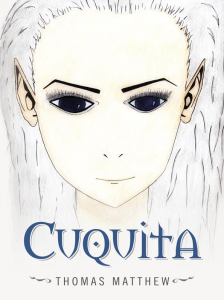 Wilson Weatherford turned down a college football scholarship to marry his high-school sweetheart, Doris, and settle down to a quiet life of farming. However, by the time the Weatherford’s children are grown, the tranquility of the countryside that so appealed to the young Weatherford has been challenged by a local crime syndicate and celebrity-obsessed, materialistic townsfolk.
Wilson Weatherford turned down a college football scholarship to marry his high-school sweetheart, Doris, and settle down to a quiet life of farming. However, by the time the Weatherford’s children are grown, the tranquility of the countryside that so appealed to the young Weatherford has been challenged by a local crime syndicate and celebrity-obsessed, materialistic townsfolk.
One morning Wilson finds a strange young woman in his barn. She looks weak and frail and seems to have lost her memory. Wilson and his family (a wife and two children home from college for the summer) take the stranger into their home and essentially adopt her. The stranger, Cuquita, is an alien who was stranded on Earth when her spaceship left without her. Cuquita is far from frail and weak, but she keeps her identity and superior physical and mental powers hidden from the Weatherfords.
Cuquita turns out to be a warm and loving addition to the Weatherford family and no mean farmhand, either. In the end, she is able to use her formidable strength and agility to repay the kindness of her hosts and put right much of the problems of the local town. The parallels to the Superman story seem obvious on the surface, but this story takes its own path and is not derivative of the Superman narrative.
The book is relatively free of annoying typos and grammatical errors, and the e-book is beautifully formatted. It has a charming, if familiar, plot, and the characters are likeable—that is to say the good guys are likeable. The bad guys are just as nasty as you would expect them to be. The book suffers, however, from a classic writing problem: The narrator tells the story rather than letting the characters and the action show the reader what’s happening.
Cuquita reads less like a novel than a story treatment with character sketches. We are told that one character is mean and selfish or that another is a dutiful child, but rarely get to see the character exhibiting these traits. What dialog there is seems stilted and unnatural, and is often a repeat of what the narrator has just told us. The narrator also goes on periodic philosophical rants about economics, politics, sportsmanship, and family values. These points would have been more powerful and certainly more entertaining had they been woven into the story rather than simply espoused by the narrator.
Things get a bit better as the subplots develop, and by the end, the tension has built to a point where you want to know how everything comes out. With more action and dialog and less narration, Cuquita: The Alien Miracle Girl would have been a much better book.
Links
Get an Editorial Review | Get Amazon Sales & Reviews | Get Edited | Get Beta Readers | Enter the SPR Book Awards | Other Marketing Services






















Leave A Comment